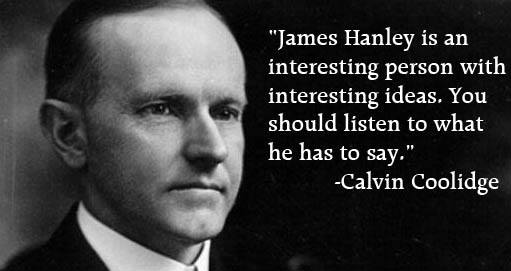Monthly Archives: March 2015
 James Hanley explains that contrary to what you may have heard, Oklahoma is not banning secular marriage.
James Hanley explains that contrary to what you may have heard, Oklahoma is not banning secular marriage.
The following is adapted from the comment I left there…
MRS and I spent quite a bit of time on Friday trying to hash this out Over There. It was an exercise in futility.
The amount of misinformation on this has been staggering. So many people seemed insistent on believing it because Oklahoma and because Christians.
I’m not even in favor of the law, but I still spent most of my time defending it against the notion that it was going to bar non-Christians and non-Jews from getting married (and that Common Law marriages aren’t “second class” in the context of the law, and that calling them Common Law marriages was not intended to slight gays, and… jesucristo I want my Friday back.)
For most of the day, we were arguing with the belief that judges had still been eliminated, and even then I think the law was defensible.
I actually like the affidavit thing. I am not sure if we’d have gone that route (I would have, but Clancy was pretty lukewarm on it when I explained it to her), but that was a genuine improvement. Michael Cain actually argues that the verbiage of the Quaker provision is such that even an obvious non-religious organization, such as a University of Tulsa Linux Club, could theoretically give the right to marry.
Everything else just seemed geared towards protecting the sensibilities of clerks, which I am pretty indifferent to. I actually have a fair amount of sympathy for private actors who don’t want to take part in a gay wedding, including but not limited to photographers and cake-bakers and especially pastors. But clerks aren’t private actors, and equal treatment is in the job description.
I still like the Wyoming model, where just about anyone can get the right to marry. Or the French model, where religious marriage and civil marriage are treated independently.
Clancy and I were married by a judge. Which is technically a civil ceremony but he dropped God’s names and the one biblical thing I did not want in my wedding (Corinthians) was inescapably there in the service. (I would have liked to include Ecclesiastes, but that didn’t work out.)
When Clancy came home on Friday night and asked my day, I explained that I spent a lot of it contemplating marriage. She said that she should have been a part of that conversation.
And lastly, there is a specific provision (the above-mentioned Quaker provision) that singles out religions that do not have a formal pastor that conducts ceremonies. Among the religions mentioned is Bahai, which by itself demonstrates that the Judeo-Christian provision was not enforced, as Bahai is not a biblical religion.
Among the things I discovered while debating the subject was that there is actually a Bahai temple right here in the Tri-State Area, which I would not have guessed. And apparently Bahai is a pretty big deal in South Carolina, which I also wouldn’t have guessed (though I may have read that before).
As you may or may not have heard: Windell Middlebrooks, who played the the iconic MHL delivery guy in a series of commercials, died at 36 of unspecified causes. There aren’t many pitchmen that I can say are great, but Middlebrooks was one of them. Here is a sample commercial:
Here’s an elongated political-themed commercial.
[And here’s a link to him is on Late, Late Night with Craig Ferguson. My parents don’t watch Ferguson, or Letterman who comes before him, but they’d DVR just about every appearance he made. And then save it for me next time I come home. We love the guy that much. In fact, last time they were here, we were talking about some commercials in BCS season and saying “Not as good as Miller High Life guy.”
My father is partial to the AT&T Rollover Minutes Mom. Here’s the best of the commercials (though with an obnoxious word balloon):
I’ve always been partial to Progressive Insurance’s Flo. Which I am told makes me insane.
Nobody will ever hold a candle to Miller High Life Delivery Guy, though.
 Paradoxically, we use fewer materials than ever to create things, but this is exacerbating material shortages.
Paradoxically, we use fewer materials than ever to create things, but this is exacerbating material shortages.
Hey! Look at some infamous, interesting, and scary roads.
Andy Kiersz and Jessica Orwig look at the science of extraterrestrial life.
If you’re cautious about marriage, you ought to be cautious about cohabitation, too.
It turns out, when gay Mormons marry, they often divorce.
Georgia has had a problem of half-built communities. Alana Semuels tells the story of what the town of Covington did about it, to the applause of some and the consternation of others.
The story of Jimmy Dushku, the guy who is being followed by North Korea’s twitter account, and nobody (including him) knows why.
Timothy Burke on the trouble with privilege.
In the future, between now and self-driving cars, will cars watch you drive?
Singapore seems to take the prize for being most enthusiastic about driverless cars.
I am intrigued by the prospect of an anti-obesity electronic implant. Is there an implant to make us exercise more?
How do we feel about robots taking our jobs? Top scientists are worried about them taking over.
I’m watching my high school basketball team on a webcast. They made it to State (the equivalent of the Final Four), for the first time since just before I was a student there.
It’s odd to explain to people outside the south “I went to a basketball high school” because everyone expects you to say that Football Is King. But it was basketball where they made the tournament on a regular basis, and the principal would calmly announce that anybody who was going to be “sick” on the Friday the tournament starts, needs to be well until 10:30, when master roll (the roll where state-wide statistics are kept) is taken, then be sick no questions asked. Don’t even visit the nurse. Just sign out.
We had trouble holding on to football coaches for this reason. They would come thinking “This is a really good school with a lot of money. This is great!” And then leave after one year when they realized they were in the shadow of our basketball coach and that just isn’t considered right.
I mention we haven’t been to state in almost 20 years. We haven’t been all that good in the meantime. The star coach retired, and his assistant who took over wasn’t as good. Things improved on the football side, though, as they found a coach who stuck around for a while and built a program. Said coach was my science teacher and an assistant football coach when I was there. I remember him fondly. He knew the deal when he took the job, which was why he stuck around for as long as he did.
The current basketball coach is the son of a former head coach at Southern Tech. The last good head coach Southern Tech had, in fact. He was fired after getting knocked out of March Madness. We haven’t made it to the tourney since. We’ve only had one winning record since. He attends basketball games at both my high school and university, which is pretty cool.
I’m only vaguely rooting for my school, though. I didn’t particularly enjoy my time there. Never fit in (I’m sure you’re surprised). Further, they rerouted my neighborhood so that if I lived there my kids would attend a school farther away. They’d been trying to reroute my middle school forever. Too many not-rich kids. So my high school is no longer my neighborhood’s high school. Further, they tore town the building that I did attend, to rebuild, so even the building where those lukewarm memories occurred no longer exists.
The stands are reasonably full.
We’re ahead at half-time.
 Western learning techniques are all the rage among the Chinese wealthy.
Western learning techniques are all the rage among the Chinese wealthy.
You know that round thingie at the end of your laptop charger? Well this is what that round thingie is all about.
The Japanese recession? Scott Sumner wants to know… What Japanese recession?
Adam Ozimek fact-checks Merle Haggard.
Alice Goffman wrote a book on the fugitive life, and here’s an excerpt.
Orange and blue are the new black, at least when it comes to movie posters.
You’ve heard of insomnia. Have you ever heard of insomnia’s opposite?
The business of fake diplomas. Not those ones from unaccredited colleges that give credit for “life experience”… but rather, completely fake ones from real schools (or, at least potentially, fake ones). I wonder if there’s one I can get for Will Truman from Southern Tech University, to put aside the one with my real name and real institution.
Leana Wen argues that patients should see their medical records.
An interesting article on India’s efforts to undo the caste system.
SimCity has a homelessness problem. Or does it?
Dave Majumdar makes the case for a space-based Internet Service (micro-satellite).
Makes sense: Birds flying in formation rotate position.
Andre Spicer and Carl Cederstrom argue that we’ve become too obsessed with wellness.
Over at Ordinary Times I wrote a marathon piece on party affiliation in television and movies, citing Trumwill’s Law:
Trumwill’s (still evolving) First Law of Television Republicans is that Republicans exist in popular entertainment largely to enhance the liberal worldview. They do this by being out-and-out villains, inept foils, turncoats, or “Good” Republicans who spend an inordinate amount of time as a tool against “Bad” Republicans. The law is sometimes broken – particularly in the area of comedy, and also sometimes where actual politics are irrelevant – but it’s true a remarkable percentage of the time. It is particularly true when dealing with inherently political stories (stories with politicians or that deal largely with political issues).
I’m not intending to bring up the perennial argument about whether “television and movies” are liberal or not. By focusing primarily on inherently political stories, I am hoping to avoid that because I think there is less disagreement on that. Most of the disagreement is why, whether it’s because of some insidious Hollywood agenda or because capitalism and/or good stories demand it or something in between. I tend to think it is mostly (but not entirely) something in between. Namely, that when an overwhelming portion of the decision-makers lean in a particular direction, it inherently finds its way into the product whether it’s intended or not. I don’t think it’s a whole lot easier for mostly white, male, liberal talent (writers, producers, decision-makers) to separate the “liberal” from their work than it is the “white” or “male.”
Near the close, I make the following observation:
Even setting aside some of the Hollywood barriers I believe would stand in the way of [a strongly conservative] project, it would require talent to write it and produce it, and conservatives have done a pretty lousy job of cultivating that talent. The primary culprits in this lopsidedness are conservatives themselves, for either not recognizing its importance or failing to act on it. Until or unless that changes, I don’t see much in the way of “progress” for my friends on the right and all the conservative railing in the world won’t change that. And I’d argue that outside attempts to pressure Hollywood by carping and complaining won’t do much more than nudge to superficial compromise that ultimately compromises the product.
Recently, David Marcus wrote The Five Principals For The Rising Counterculture, which I thought was misguided for multiple reasons. One of which was this:
But the conservative counter-culture should not try to mirror this network of wealth and ideology in bringing more conservative art to life. There is a place for donated resources, in developing content creators and establishing infrastructure. But the works themselves should compete without the overbearing influence of these funds—not only because free markets are conservative, but because they produce the best products. As the Progressive arts entrench their narrative and play to smaller and smaller groups of sycophants, conservative artists should be focused on work that pays for itself. This doesn’t mean work that makes the most money is the best, it means the work that attracts the most participation is. Participation can always be monetized. In popular work we will find our strongest messages.
I’d argue that they need a minor league before they can try to play in the big leagues, and minor leagues are cost-losing endeavors. The Idaho Falls Chukars and Casper Ghosts don’t turn a profit, but are subsidized for the development of players for the Kansas City Royals and Colorado Rockies. Even if a lot of the subsidized art will never make it to wider audiences, it can and should be used to cultivate talent. And, if done wisely, it can bypass the need for an immediate buck, which for the right tends to be exactly the sort of “preaching to the choir” that Marcus is worried about. In other words, the Kochs need to help bankroll a George Mason University film school, with the idea of making market-friendly film. The point won’t be the immediate making of films that will change the world, but fostering filmmakers who are interested in making such movies in the future.
But make that’s what he means when it talks about donations and such having their place. I just see that as something that isn’t being done on any serious level. But Marcus and I might find agreement in a certain wariness that a GMU Film Institute might fall victim to some of the same problems that conservative think tanks have had, where the fear of stepping out of line and losing funding is too great and the actual brainwork atrophies. But the market-based alternative of Fox News and news radio, has also not succeeded along lines that have helped conservatism*.
* – Both have their place. The right wouldn’t be what it is today without finding and gathering on the abandoned AM frequencies, and Fox News was innovating and helpful. Eventually, though, it became clear that what helped their bottom line and what helped the movement were two different things. And capitalism is such that when interest diverge, they will understandably go where the money takes them.
 NASA is pondering airship cities over Venus.
NASA is pondering airship cities over Venus.
A former NASA employee says that she saw men walking on Mars in 1979.
Eric Holthaus argues that high-speed rail is a waste of time and money, and a misguided priority for people looking for ways to combat global warming.
Odessa Jones makes the case for Korean television. I… don’t do well with subtitles, I’m afraid.
Harry Benson argues that giving cohabitating couples the same rights as married couples undermines men’s commitment. I hadn’t thought about it in quite that manner, but my view is that if you want the obligations and benefits of marriage, there is only one thing you need to do to make it happen. Unless you are gay, but they’re increasingly in the same boat.
Ugly stereotype alert! Watch a bunch of body-builders debate how many days there are in two weeks.
Thomas Lumley says that cancer isn’t just bad luck. Not just bad luck, but I want to see what the figure (roughly 1/3 according to Lumley) if we include genetics, which I consider to be a type of bad luck.
The story of Hitler’s attempt to build the perfect Nazi cow.
Don’t steer, hit the deer. I still haven’t figured out what the deal with this sign is, other than to confirm that it was a turtle and not a hard hat.
Why we don’t have Phil Collins to kick around anymore. The haters won.
A new study gets closer to asking what I consider to be the most pertinent questions to ask on the question of whether college is a good idea: What happens when we look at the more marginal cases. When trying to figure out someone whose academic record would place them at Fresno State, we don’t need to consider the wage premiums of places like Berkeley.
The evolution of Lara Croft. Does anyone else remember how amazing the graphics of Pit-Fighter were when it came out?
More to Buffalo, live like kings I tell ya.
How Dodd-Frank, or at least the efforts to combat mineral diamonds within, made things much worse.
10. Chicken Boo – Stops having any entertainment value after you’ve seen it twice.
9. Hip Hippos – The one with Noah’s arc was good. Other than that…
8. Minerva Mink – Obnoxious lead. Has its moments.
7. Katie Kaboom – Clever concept, but repetitive. Maybe I’ll enjoy it more when Lain is a teenager.
6. Goodfeathers – Definitely has its moments, but episodes seem to bifurcate between good and kinda boring, with the latter outnumbering the former. Never terrible, though.
5. Rita and Runt – Reasonably steady and consistently good, though (almost) never really good.
4. Slappy Squirrel – The Woodstock segment, above, is utterly brilliant for fans of classic rock and Abbott & Costello. Segments tend towards the good or bad, with not much in between.
3. Pinky & The Brain – There is a reason this one took off.
2. Molly & Buttons – I am not sure I would have appreciated this one as much before Lain was born. But she was and I do. It’s also one of Lain’s favorites.
1. Warner Brothers (and their Sister Dot) – Yeah. Obviously.
Swedish women don’t like the phrase “flying solo” and are looking for a replacement.
Is feminism leaving behind the disabled?
Susan Krauss and Matt Huston look at how to break up, and how not to break up, while Maureen O’Connor writes about how to win your break up.
If you want to find the Hollywood sign in LA, there are people going to great lengths to make it as difficult as possible, and they’ve enlisted Google Maps.
Razib Khan looks at gender and transgenderism.
Sandeep Jauhar looks at the importance of medical cost transparency.
What are some foreign misconceptions about the United States?
Is science in Europe going in the wrong direction?
The story of Aimee Semple McPherson, a glamorous evangelical preacher in the 20’s who plum disappeared.
I’m still reading Harry Turtledove’s Southern Victory series. Jim Bennett doesn’t buy the CSA-UK-French alliance in World War I.
James Hamblin looks at nationwide pay and salaries of physicians. Our county in Arapaho stands out as being particularly low-wage.
Erik Sofge thinks we’ve been tricked into fearing AI.
“Dragon Age: Inquisition is easily the most personal, well-designed relationship system I’ve ever seen – and if we learn anything at all from the media we consume, then our awkward, virtual sexual encounters in games like this could maybe shape us all into better, more respectful people.”
Adam Mansbach, of “Go The F* To Sleep” fame, announces his college syllabus. Salon, which seems to be self-parody sometimes, actually does a decent job with real parody.
hotestheadsofstate.com has a list of the hottest US presidents. It cheats a little with some of the pictures, showing them when they were younger. Franklin Pierce grew into a clone of Mitt Romney, which is reasonably attractive, but nothing like the photo presented. I’m on board with the top five, more or less, but it kind of goes off the rails after that.
I’m rather shocked by George W Bush being in the top ten. I’m also a bit surprised to see Taft and Cleveland, our two most obese presidents, avoid the bottom of the list.
Relatedly, here is a list of presidents who were hot when they were younger. Teddy Roosevelt’s position on this list makes more sense. When I was audioreading How Few Remain, which features a young TR, I never got away from envisioning the older version. He actually looked like an actor I can’t quite place. Can you place him?


